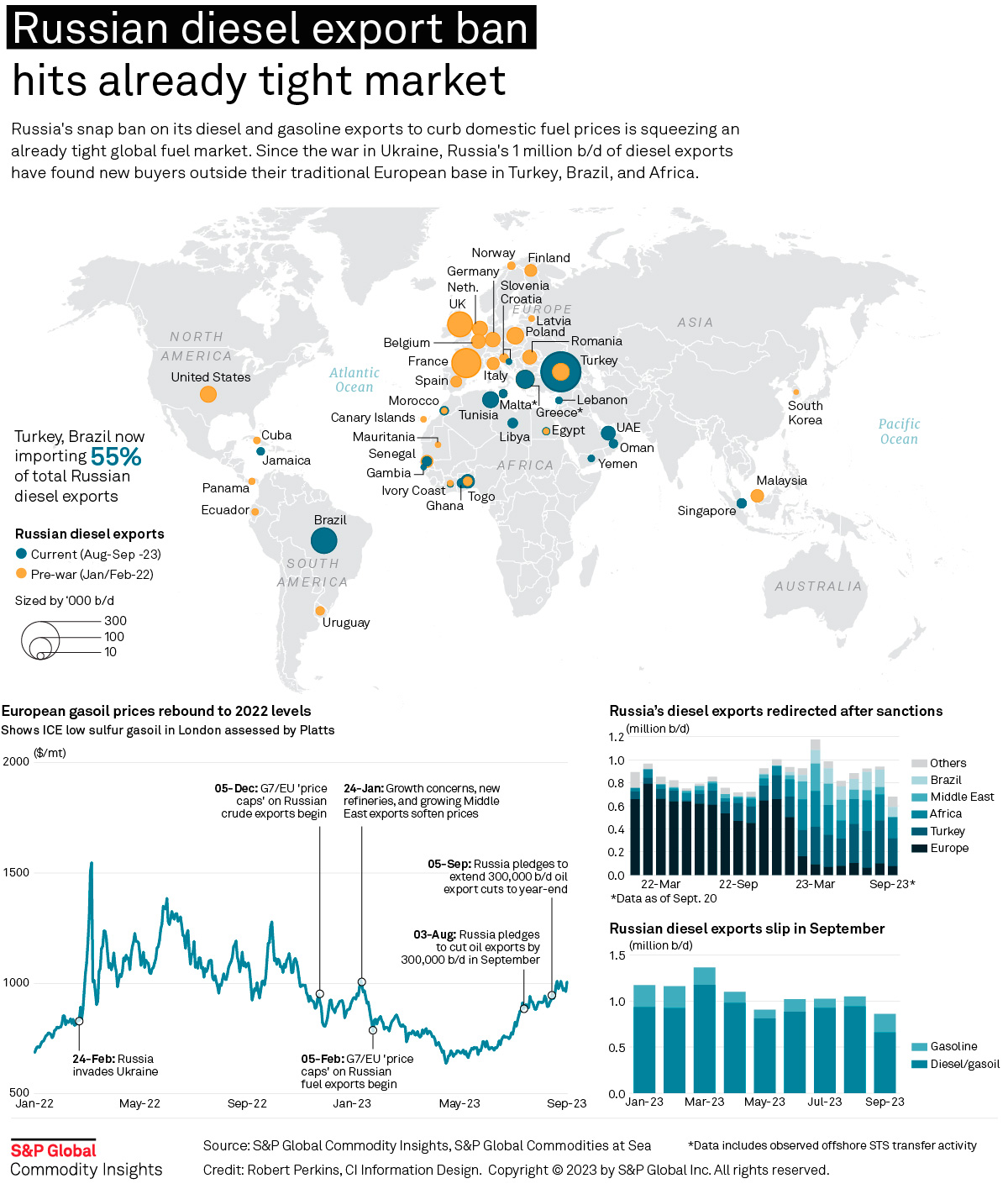Russia Extends Fuel Export Ban Through Year's End Due to Domestic Shortages
Russia has extended its partial ban on diesel exports and continued its gasoline export ban through the end of the year, citing domestic fuel shortages following Ukrainian strikes on energy infrastructure.

Russian Government Announces Extended Fuel Export Restrictions
Deputy Prime Minister Alexander Novak of Russia declared the extension of a partial ban on diesel exports until the end of the year, along with a continuation of the existing ban on gasoline exports. The announcement was made in response to ongoing domestic fuel shortages, which have intensified following recent Ukrainian attacks on Russian energy infrastructure. Novak stated that these measures are necessary to stabilize the domestic market and ensure adequate supply for Russian consumers.
The Russian government’s decision affects major oil-producing regions and refineries across the country, with export restrictions now set to remain in place for several more months. The move is expected to impact Russia’s fuel trade partners, particularly those in Europe and Asia who rely on Russian diesel and gasoline supplies. The export bans were first implemented earlier in the year and have now been extended as shortages persist.
Impact on Global Energy Markets and Regional Trade
According to the Al Attiyah Foundation Weekly Energy Market Review, Russia’s extended fuel export restrictions have contributed to a significant rise in global oil prices, with the market experiencing its largest weekly gain in three months. The foundation noted that the ban has disrupted supply chains and increased volatility in energy markets, as traders adjust to reduced Russian exports.
Energy experts have highlighted Turkey’s role as a key intermediary in the regional oil trade, with the country exporting more petroleum products to Europe from Russian oil than India. This shift in trade patterns has drawn attention from analysts, who point out that Turkey’s exports have not faced the same scrutiny as those from other nations. The continued ban on Russian fuel exports is likely to further reshape the flow of petroleum products across Europe and neighboring regions.
Consequences for Russian Domestic Supply and International Relations
The success of Ukrainian strikes on Russian energy infrastructure has been cited as a primary factor leading to the fuel shortages and subsequent export bans. Mick Ryan, a military analyst, described the export restrictions as a clear measure of the effectiveness of Ukraine’s campaign against Russian energy assets. Russian authorities have emphasized the need to prioritize domestic supply, with Novak reiterating the government’s commitment to ensuring fuel availability for Russian citizens.
Internationally, the export bans have triggered concerns among Russia’s trade partners, who depend on consistent fuel imports for their own energy needs. The restrictions have forced these countries to seek alternative sources, potentially increasing competition and prices in the global market. The Russian government has not provided specific details on when the bans might be lifted, but officials indicated that the measures would remain in place until domestic supply stabilizes.
Sources
-
Phillips’s Newsletter
Weekend Update #152: Oil Production And Logistics
-
Fakti.bg - Да извадим фак...
Ukrainian strikes on Russian energy infrastructure...
-
Marhaba Qatar
Al Attiyah Foundation Weekly Energy Market Review...
-
الشرق الأوسط
Oil Set for Biggest Weekly Gain in Three Months as...
-
Business Today
'Turkey ships more Russian oil to Europe than Indi...
-
Futura Doctrina
Tomahawks, NATO's "War on Russia" and Russian Gas...